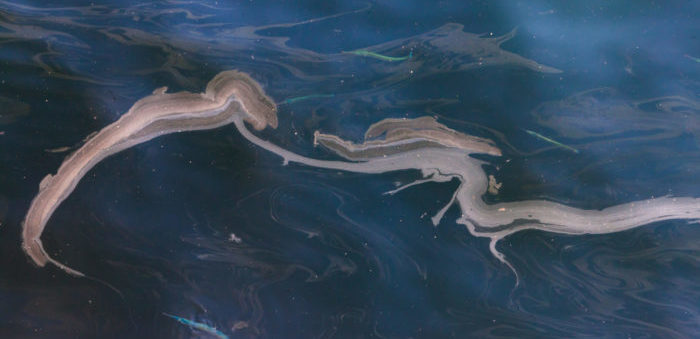UK P&I Club informs about an oil spill incident. Namely, a tanker was ready to load a petroleum product cargo at an offshore anchorage by ship to ship transfer (STS). During the operation, the cargo hose ruptured causing oil to spray on deck and overboard.
The incident
A tanker was about to load a petroleum product cargo at an offshore anchorage by ship to ship transfer (STS). After making fast alongside the storage vessel, cargo tanks were inspected and pre-loading checklists completed which included agreement on the maximum cargo transfer rate. A cargo hose was connected between the respective vessels manifolds. During transfer operations, the cargo hose ruptured, causing oil to spray on deck and overboard.
[smlsubform prepend=”GET THE SAFETY4SEA IN YOUR INBOX!” showname=false emailtxt=”” emailholder=”Enter your email address” showsubmit=true submittxt=”Submit” jsthanks=false thankyou=”Thank you for subscribing to our mailing list”]
The crew’s response was immediate as they rose the alarm, instructing the storage vessel to stop the transfer. After that they confines and collected the oil spill on deck. Following the clean-up operations, an investigation were completed, and the hose was replaced and operations resumed. Only a very small quantity of oil was released into the sea, because of the quick and effective response of the crew.
Probable cause
The investigation showed that the failure of the hose had to do with its condition as there was no evidence that the pumping rate or pressure in the system was exceeded.
Markings on the hose indicated that it was pressure tested more than two years before the incident and no valid certificate of inspection and test could be produced on demand.
Thus, responsibility for confirming the hoses were ready for the operation and properly certificated rest with the STS service provider. However, the crew should carefully inspect transfer hoses and request access to the hose documentation, check that identification markings match up and protest any defects or anomalies. Industry guidelines require that periodic tests of hoses have to be carried out at intervals not more than 12 months.
- Ship to Ship transfer operations must be performed taking into consideration the requirements of the vessel STS operations plan, MARPOL regulations for the prevention of pollution during transfer of oil at Sea, the Ship to Ship Transfer Guide and the vessel Safety Management System;
- Cargo transfer hoses should be fit for purpose and provided with valid records of test and inspection;
- Any evidence of deficient or non-compliant transfer hoses should be protested and thereafter investigated / rectified by the responsible party;
- This incident demonstrates the vital importance of the crew keeping a vigilant deck watch during transfer operations and in responding rapidly to contain a spill in accordance with drilled procedures.






























































